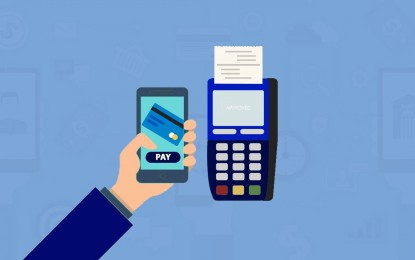
MANILA – Increasing digital fraud attempts against businesses and consumers in the Philippines was observed during the coronavirus disease 2019 (Covid-19) pandemic, according to the Global Consumer Pulse study of global information and insights company TransUnion.
The study was based on intelligence from billions of transactions and over 40,000 websites and apps from TransUnion TruvalidateTM, a flagship identity proofing, risk-based authentication, and fraud analytics solution suite.
In its Global Consumer Pulse study, 44 percent of Philippine-based consumers have been targeted by digital fraud in the last three months.
It said Salcedo in Eastern Samar, Makati City, and Manila were the top three areas with the highest share of suspected fraudulent digital transactions.
Online fraud attempts were mostly targeted to Gen Z, or those born between 1995 and 2002, at 48 percent; followed by Millennials, or born between 1980 and 1994, at 42 percent.
“Fraudsters are always looking to take advantage of significant world events. The Covid-19 pandemic and its corresponding rapid digital acceleration brought about by stay-at-home orders is a global event unrivaled in the online age,” TransUnion Philippines president and chief executive officer Pia Arellano said in a statement Wednesday.
In terms of digital fraud attempts against enterprises, TransUnion has seen a 31-percent increase in attacks this year from pre-pandemic level in March 11, 2019 to March 10, 2020 during the Covid-19.
Suspected digital fraud attempts in the country were high in sectors of telecommunications, logistics, and financial services, the study indicated.
“Results showed a significant increase in attempted fraud from the Philippines against telecommunication companies. With more than a ten-fold increase (1,108 percent), this has been a significant development during Covid-19 times,” TransUnion said.
It added the scammers are using fraudulent credit cards to purchase high-end phones and sell them back on the black market.
“Fraud can have a potentially disastrous impact on a business’ and a consumer’s finances. In our increasingly digital economy, being able to spot fraudulent transactions whilst still providing genuine consumers with a great experience is a balancing act that organizations need to solve. By using the latest solutions, businesses can build trusted relationships and transact with confidence knowing they are safeguarding both themselves and the consumers they serve,” Arellano said. (PNA)
